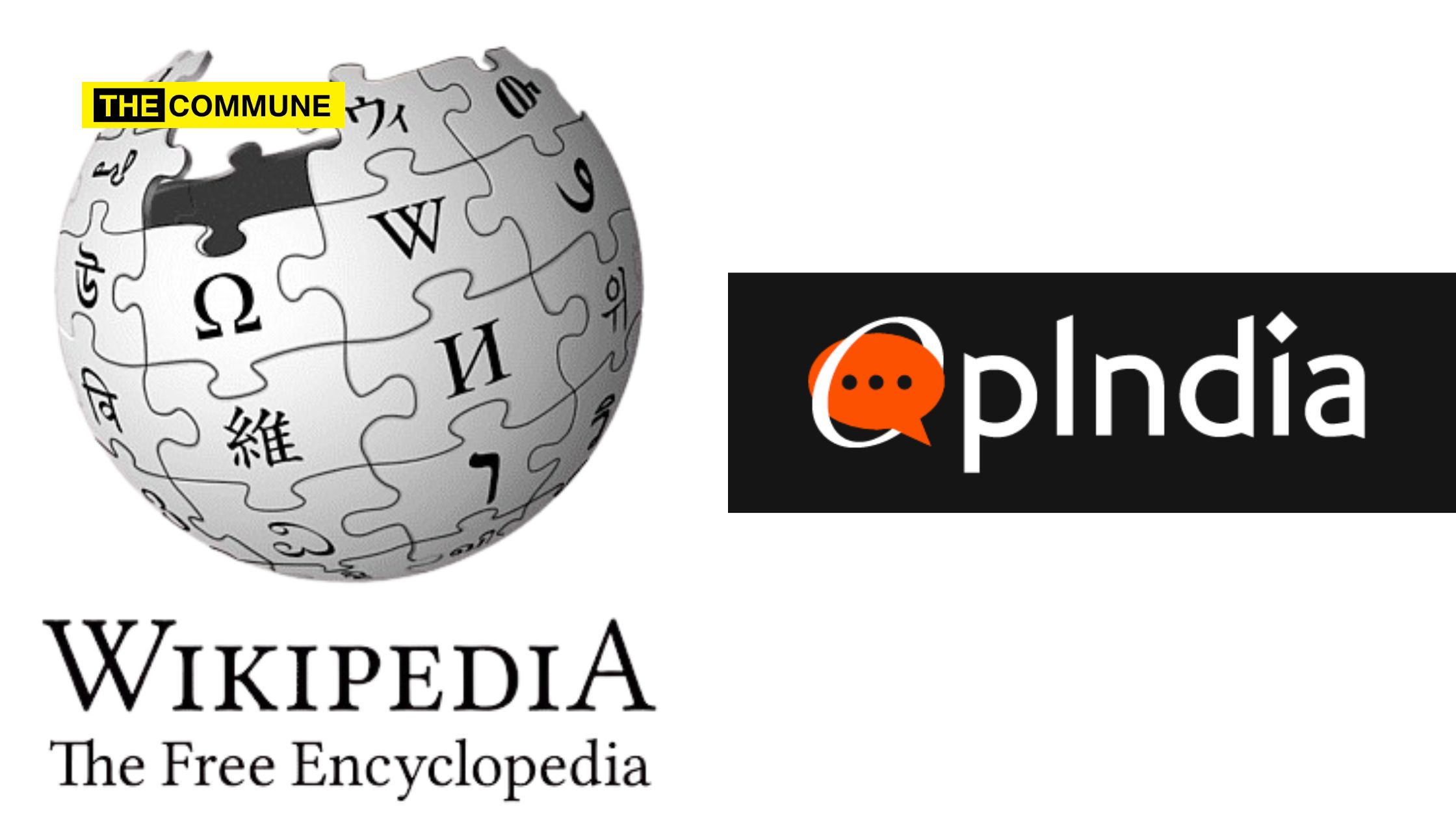
According to a new dossier by OpIndia, Wikipedia should be considered a publisher and subject to Indian laws. The report challenges Wikipedia’s claim of being a neutral, volunteer-based platform, arguing that its significant editorial control and financial arrangement with contributors position it firmly as a publisher. This scrutiny comes as Wikipedia resists compliance with Indian regulations, suggesting it avoids legal responsibilities by portraying itself as a mere intermediary.
The dossier highlights the need for Wikipedia to adhere to the same legal standards as other publishers operating in India.
OpIndia Dossier
The news website OpIndia has published a detailed dossier that aims to disprove the ‘fact‘ that Wikipedia operates as a free, editorially neutral encyclopaedia reliant on the voluntary efforts of unpaid contributors, as claimed by the Wikimedia Foundation. The dossier mainly focuses on Wikipedia’s content related to India, Indian laws, and the implications of treating Wikipedia as a publisher, making it directly liable for its content on its platform.
Wikipedia, managed by the Wikimedia Foundation, presents itself as an open, crowd-sourced platform where volunteers across the globe collaboratively create and curate content. It argues that it operates as an intermediary, not a publisher, exempting it from many legal responsibilities, especially under Indian law. However, upon closer examination, it becomes clear that Wikipedia functions more like a publisher than an intermediary, exercising significant editorial control and paying certain contributors. This distinction is crucial in determining whether it should be subject to Indian laws. Here’s why Wikipedia should be considered a publisher and thus, legally accountable.
A Brief Look At Wikipedia’s Legal Stance
Wikimedia Foundation, the parent organization of Wikipedia, frequently claims immunity from various national laws by asserting that it is a neutral intermediary that hosts content generated by independent users. This was demonstrated in 2023 when a Delhi court issued a summons to Wikipedia, BBC, and Internet Archive concerning the banned Modi documentary by the BBC.
Wikipedia and BBC argued that the Delhi court had no jurisdiction over them since they were foreign entities. While the Internet Archive complied by removing the documentary, Wikimedia resisted, indicating that Indian laws do not apply to its platform.
The Foundation’s response to the Indian government’s 2018 Intermediary Guidelines, which sought to regulate online content, further underscores its unwillingness to submit to Indian legal scrutiny. Wikimedia expressed concerns over the guidelines, which would have held intermediaries accountable for failing to remove unlawful content. It argued that such rules would turn the internet from an open platform into a tool of automated censorship, which it said would stifle free speech.
The Reality Behind Wikimedia’s Claims Of ‘Neutrality’
Wikimedia Foundation claims that it has no editorial control over the content published on its platform, maintaining that it is purely a volunteer-driven site. However, this portrayal is misleading. The Foundation explicitly funds certain editors, administrators, and contributors through grants, and has a clear editorial line. For instance, the page on “Democratic Backsliding in India” was the result of a funded project under the Wikimedia Education program, which casts doubt on the platform’s claim of neutrality.
Furthermore, Wikimedia actively pays certain editors and administrators, allowing them to shape the platform’s editorial policies. This level of control means that Wikipedia is no longer merely a neutral intermediary but is instead taking a direct role in the creation and promotion of specific content. When a platform exercises such editorial oversight, it can no longer claim to be a passive intermediary.
The Case For Wikipedia As A Publisher
Under Indian law, a publisher is defined as an entity that performs a significant role in determining what content is made available to the public. A publisher, unlike an intermediary, exercises editorial control and decides which sources to include, which content to publish, and how to present that information. Wikipedia clearly fits this definition.
- Editorial Oversight and Paid Contributions: Wikipedia’s content is not purely volunteer-driven. The Foundation not only pays editors but also funds specific projects that shape the editorial direction of the platform. For example, content related to socio-political issues, like the article mentioned above on India’s democratic status, reflects a specific editorial stance that is not necessarily neutral.
- Censorship and Control of Sources: Wikipedia’s editorial policies restrict including specific sources, especially non-left-leaning viewpoints. This selective censorship demonstrates that the platform curates content to a particular narrative. For instance, police and court statements are often disregarded as unreliable, while left-leaning sources are disproportionately favoured.
- Intermediary vs. Publisher: Under Indian law, an intermediary is a platform that enables users to create, upload, share, or modify information without exercising editorial oversight. Wikipedia’s editorial practices, however, disqualify it from this category. The platform decides what is notable or relevant, rejects certain sources, and bans contributors who do not adhere to its editorial standards.
This level of editorial control places Wikipedia squarely in the publisher category. By shaping content and promoting specific viewpoints, it assumes the responsibilities of a publisher and should be held accountable.
How Wikimedia Evades Indian Laws
Wikimedia’s reluctance to comply with Indian laws is rooted in its refusal to acknowledge its role as a publisher. This avoidance is evident in its resistance to India’s Foreign Contribution Regulation Act (FCRA) rules and its refusal to open an office in India. By operating without an Indian office, Wikimedia avoids filing financial disclosures or adhering to Indian regulations regarding foreign entities.
In its response to India’s Intermediary Guidelines, Wikimedia expressed concern over the cost of surveillance and compliance. It argued that complying with Indian laws would place an undue financial burden on its operations. However, Wikimedia’s own financial disclosures show that a significant portion of its revenue is spent on grants to editors, writers, and administrators, making this argument weak. The Foundation allocates millions of dollars to its editorial activities, contradicting its claim that compliance with Indian laws would be financially unsustainable.
Wikimedia also argued that the requirement to remove illegal content within a short time frame would hinder Wikipedia’s collaborative model. However, this concern is less about operational difficulties and more about maintaining editorial control without accountability. Wikimedia is reluctant to subject its editorial decisions to Indian legal scrutiny, preferring instead to operate under the guise of being an intermediary.
Wikipedia’s Argument For Global Neutrality
Wikimedia contends that its global reach and collaborative model make it impossible to adhere to country-specific laws. According to the Foundation, implementing content removal based on the legal requirements of individual countries would create “problematic gaps” in its content, as changes made in one country would affect the platform’s global audience.
This argument is deeply flawed. While it is true that Wikipedia has a global user base, its content is far from universally neutral. The platform’s editorial decisions are influenced by a small group of editors and administrators, many of whom are paid by the Foundation. This hierarchical model undermines the claim that Wikipedia is a truly crowd-sourced, neutral platform. In reality, the platform operates more like a traditional media organization, with clear editorial guidelines and selective content moderation.
Moreover, Wikimedia’s concerns about censorship are hypocritical, given that it already engages in selective censorship. The platform’s editorial policies prevent certain viewpoints from being published, which effectively amounts to censorship. Yet, when Indian laws require the removal of illegal content, Wikimedia cries foul, claiming that such requirements would stifle free speech.
Wikimedia’s Refusal To Open An Indian Office
One of Wikimedia’s most telling strategies to evade Indian law is its refusal to open an office in India. By not having a physical presence in the country, Wikimedia avoids being subject to Indian jurisdiction. It does not file returns in India, does not adhere to FCRA regulations, and does not account for payments made to Indian editors and administrators. This lack of accountability allows Wikimedia to operate with impunity, even as it promotes content that may violate Indian laws.
Wikimedia argues that opening an office in India would create an undue financial burden. However, given the millions it spends annually on grants and editorial activities, this claim is difficult to take seriously. The real reason Wikimedia avoids establishing an office in India is to evade legal scrutiny and continue operating without oversight.
The Need For Legal Accountability
The crux of the issue is that Wikipedia cannot claim to be an intermediary when it exercises significant editorial control. As a publisher, it should be subject to the same legal obligations as other media organizations. Indian laws, particularly the Information Technology (Intermediary Guidelines and Digital Media Ethics Code) Rules, 2021, apply to digital media and publishers of news and current affairs. These rules are designed to hold publishers accountable for the content they produce and distribute.
Wikipedia fits the definition of a publisher under these guidelines. It curates and promotes content, exercises editorial oversight, and pays contributors to create and edit articles. Therefore, it should be held to the same standards as other publishers, including compliance with Indian laws regarding content moderation and financial transparency.
Last Word
The Wikimedia Foundation’s claim that Wikipedia is a neutral intermediary does not hold up under scrutiny. The platform exercises significant editorial control, funds specific projects, and selectively promotes certain viewpoints. This makes it a publisher, not an intermediary. As such, Wikipedia should be subject to Indian laws, including regulations regarding content removal, financial disclosures, and compliance with FCRA rules.
By refusing to comply with Indian laws and avoiding establishing a physical presence in the country, Wikimedia undermines its claim of neutrality and transparency. It is time for Wikipedia to be held accountable as a publisher and adhere to the same legal standards as other media organizations operating in India.
(With inputs from OpIndia)
Subscribe to our Telegram, WhatsApp, and Instagram channels and get the best stories of the day delivered to you personally.




